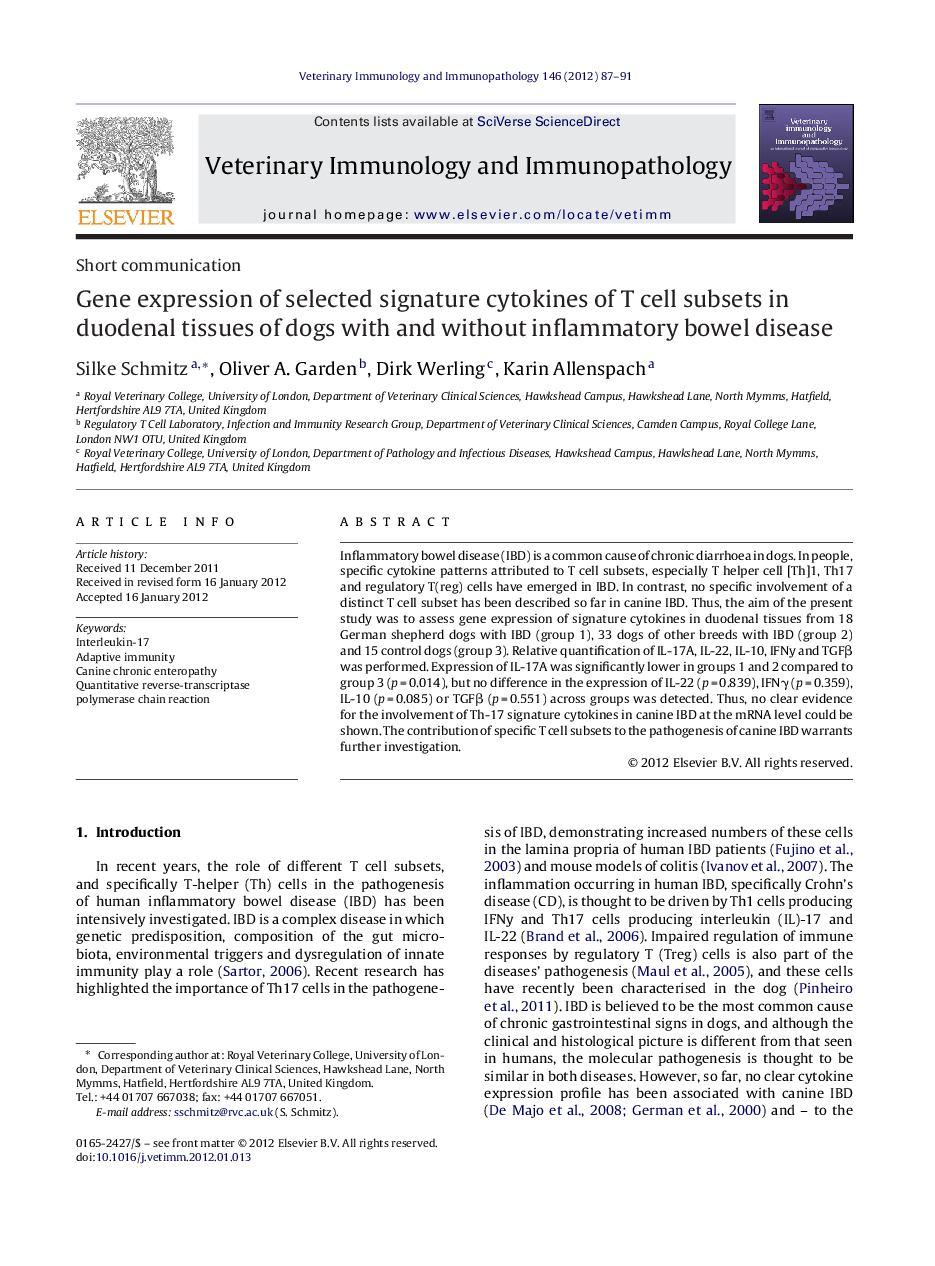| Article ID | Journal | Published Year | Pages | File Type |
|---|---|---|---|---|
| 5796904 | Veterinary Immunology and Immunopathology | 2012 | 5 Pages |
Inflammatory bowel disease (IBD) is a common cause of chronic diarrhoea in dogs. In people, specific cytokine patterns attributed to T cell subsets, especially T helper cell [Th]1, Th17 and regulatory T(reg) cells have emerged in IBD. In contrast, no specific involvement of a distinct T cell subset has been described so far in canine IBD. Thus, the aim of the present study was to assess gene expression of signature cytokines in duodenal tissues from 18 German shepherd dogs with IBD (group 1), 33 dogs of other breeds with IBD (group 2) and 15 control dogs (group 3). Relative quantification of IL-17A, IL-22, IL-10, IFNy and TGFβ was performed. Expression of IL-17A was significantly lower in groups 1 and 2 compared to group 3 (p = 0.014), but no difference in the expression of IL-22 (p = 0.839), IFNγ (p = 0.359), IL-10 (p = 0.085) or TGFβ (p = 0.551) across groups was detected. Thus, no clear evidence for the involvement of Th-17 signature cytokines in canine IBD at the mRNA level could be shown. The contribution of specific T cell subsets to the pathogenesis of canine IBD warrants further investigation.
